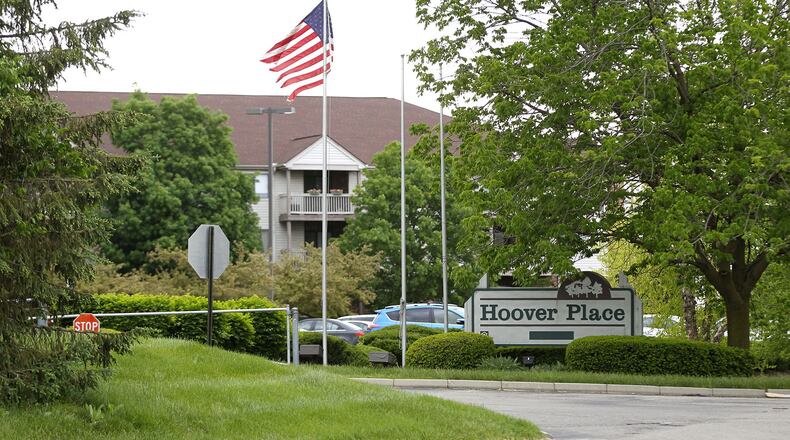The 73-page lawsuit filed in Dayton’s U.S. District Court said the company is accused of “unlawful discrimination that raises an issue of general public importance” and that the conduct was “intentional, willful and taken in disregard for the rights of others.”
RELATED: Downtown Dayton building sold to hotel developer
About two-thirds of the complexes are in Ohio and, of those 55, about half are in southwest Ohio.
Apartment complexes cited in the complaint include Miller-Valentine properties in Middletown, Piqua, Bellefontaine, Huber Heights, Bellbrook, Moraine, Lebanon, Trotwood, Dayton, Greenville, Oxford, Springboro, Sidney, Vandalia, Tipp City, Beavercreek and Xenia.
RELATED: Feds say area housing units don't meet disability rules. Here's where they are.
“For over two decades federal laws have required multifamily housing complexes to be built with accessible features,” Assistant Attorney General Eric Dreiband said in the press release. “The Department of Justice is committed to protecting the rights of persons with disabilities to equal access to housing opportunities, including accessible dwellings and related facilities.”
Miller-Valentine CEO Elizabeth Mangan released a statement Thursday afternoon that said the company had not reviewed the lawsuit and declined specific comments on it.
“Miller-Valentine Operations is a great company that prides itself on providing housing in communities serving a full range of residents. We hire professionals to ensure that all of our properties are designed and constructed to be accessible, adaptable and usable by persons with disabilities,” the statement said.
FIRST REPORT: Feds sue builder Miller-Valentine for ignoring disability regulations
“We have been building multifamily communities for more than two decades and have always hired reputable design and engineering firms to ensure compliance with federal, state and local accessibility codes. Miller-Valentine Operations does not engage in or support discrimination in any form, and we are not aware of complaints from residents regarding accessibility of our apartment homes,” the statement said.
The lawsuit alleges the properties have major accessibility barriers, including steps leading to building entrances; non-existent or excessively sloped pedestrian routes from apartment units to site amenities; inaccessible parking; inaccessible bathrooms and kitchens; inaccessible door hardware; and insufficient maneuvering space at unit entrances and entrances to common use areas that make those entrances inaccessible to many people with disabilities.
“The United States obtained property plans related to the FHA Subject Properties,” the complaint said. “These plans show inaccessible features at covered units, including, but not limited to, doors with non-compliant openings and bathrooms and kitchens with insufficient clear floor space.”
The lawsuit seeks an order requiring Miller-Valentine to bring the properties into FHA and ADA compliance, requires the company to pay monetary damages to persons harmed by the lack of accessibility and civil penalties to the United States.
RELATED: 5 things to know about the momentum behind the Dayton Arcade project
Miller-Valentine’s website includes a 2016 article that boasted the group was ranked No. 3 nationally among affordable housing developers. The ranking represented 1,134 units started and 419 completed.
“Our philosophy is that our affordable housing projects need to improve not only the lives of the residents but the neighborhood in which they’re located,” Brian McGeady, president of Affordable Housing, was quoted as saying.
The lawsuit alleges the company failed to be in compliance with the Fair Housing Act (FHA) and the Americans with Disabilities Act (ADA). The press release said the 82 complexes contain more than 3,000 units required by the FHA to have accessible features and most contain public spaces required to comply with the ADA.
RELATED: Dayton developer names new CEO, announces business spin-off
The press release said that according to the complaint, the defendants built many of the complexes with the assistance of federal Low-Income Housing Tax Credits or with the financial assistance of other federal government programs.
“We’re in the business of enforcing federal civil rights laws to their fullest extent,” Benjamin Glassman, U.S. Attorney for the Southern District of Ohio, said in the press release. “It doesn’t matter to us whether the defendant is an individual in a single neighborhood or, as here, a company operating in many states.
“The complaint that the United States filed today alleges not only that Miller-Valentine designed and built multi-family housing complexes that are not accessible to people with disabilities, but also that Miller-Valentine took public money to build those complexes and yet still built them such that some citizens wouldn’t be able to live there.”
RELATED: Steam Plant owner to plead in EPA case, get passport for Bahamas trip
The legal action seeks to prohibit Miller-Valentine from designing or constructing future residential properties in a manner that discriminates against persons with disabilities.
Federal authorities said anyone with information about the inaccessible conditions at Miller-Valentine properties can call the Dept. of Justice at (800) 896-7743 and follow the prompts to mailbox number 9996 or e-mail fairhousing@usdoj.gov.
RELATED: The Dayton Arcade is 'happening.' How it nearly didn't
Enacted in 1990, the ADA requires places of public accommodation at multifamily housing complexes opened after Jan. 26, 1993, be accessible to people with disabilities.
Raquel Parker, who has lived at Timber Ridge Apartments in Riverside for a dozen years, said it’s ridiculous that housing is built without disabled people in mind. She said her grandmother’s visit in January illustrated that.
“She uses a scooter, and we stay on the second floor,” Parker said. “It was kind of hard and a hassle just trying to get her in here and get her out.”
MORE: Read other stories from Mark Gokavi
About the Author
